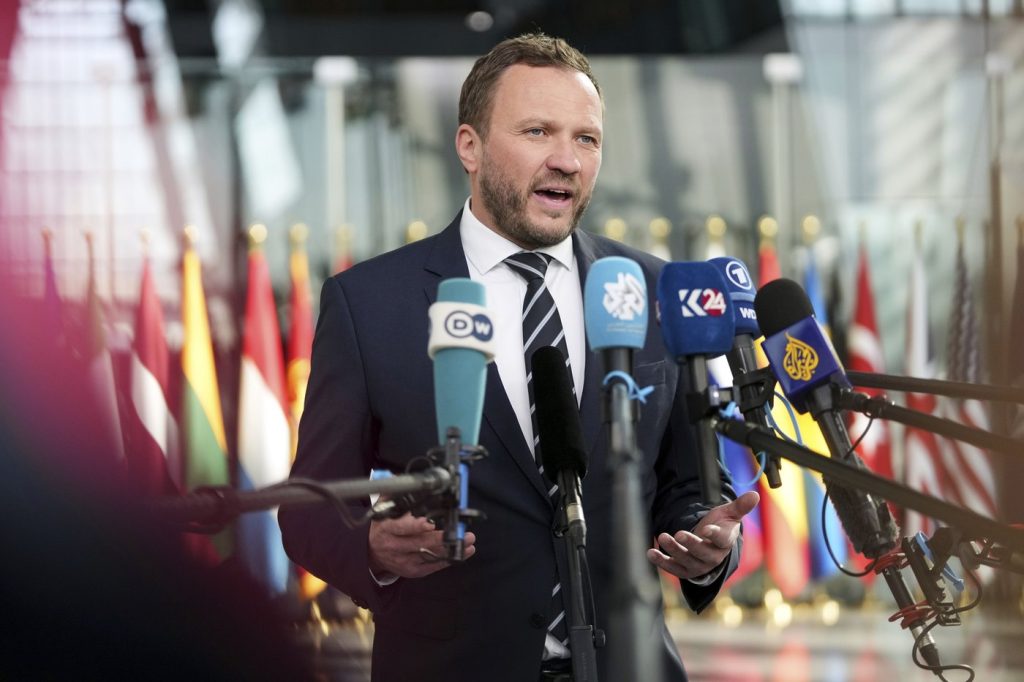TALLINN, Estonia (AP) — Recently, Russian pilots reportedly breached Estonian airspace, prompting a response from NATO's Baltic Air Policing Mission, which included Italian F-35 jets. A senior Estonian military official confirmed that the Russian aircraft ignored multiple signals from the NATO jets during a 12-minute incursion that took place on Friday between 9:58 AM and 10:10 AM local time. This incident marks the fourth airspace violation by Russia this year, according to Estonian officials.
The Estonian military identified the Russian jets as MIG-31 fighters, which had taken off from an airfield near Petrozavodsk in northwestern Russia and were reportedly on their way to Kaliningrad, a Russian exclave located on the Baltic Sea, sandwiched between Lithuania and Poland. The violation occurred near Vaindloo, a small island in the Gulf of Finland. Following the breach, two Finnish fighter jets initially tracked the Russian aircraft until they were intercepted by the Italian jets, which escorted them into international airspace.
Despite the violation being confirmed by both radar and visual observations, Russia's Defense Ministry denied that its aircraft had entered Estonian airspace, claiming that the MIG-31 jets had remained in neutral waters more than 3 kilometers (1.8 miles) from the island. Estonian officials have dismissed this denial, asserting that their surveillance capabilities unequivocally indicate otherwise.
Colonel Ants Kiviselg, commander of Estonia's Military Intelligence Center, emphasized that the Russian pilots must have been aware they were in Estonian airspace. He noted that while the Russian jets did not pose a direct military threat, their failure to respond appropriately to communications from the Italian jets is concerning. Kiviselg questioned the motivations behind the pilots’ actions, suggesting deliberate intent might be at play.
Estonia’s Foreign Minister, Margus Tsahkna, described the airspace violation as a "very serious" issue, recalling that the last notable breach of this magnitude occurred back in 2003, just before Estonia became a NATO member. In response to the incident, the Estonian government announced its intention to invoke Article 4 of NATO's treaty, which allows member countries to consult on matters of territorial integrity and security threats. This reaction comes in light of a similar situation that occurred when Poland faced violations by Russian drones.
Amid international tensions, U.S. President Donald Trump expressed his concerns, stating he would seek further briefings on the matter. He remarked on the potential implications of such incursions, indicating they could lead to significant trouble.
Further responding to the breach, the Estonian Minister of Defense Hanno Pevkur noted that the situation differed greatly from events in 2015 when Turkey shot down a Russian fighter jet after it briefly violated Turkish airspace. Pevkur clarified that the circumstances surrounding these incidents are fundamentally distinct, as the Turkish engagement involved a direct threat to its sovereignty.
Despite escalating airspace violations by Russian drones and jet fighters, Estonian officials expressed confidence that there was no immediate need to trigger NATO's Article 5, which concerns collective defense. They maintained that their monitoring of the situation showed no reason to escalate military confrontation at this stage.
In response to the rising tensions in the region, Pevkur suggested the recent violations and cyberattacks by Russia might be efforts to distract NATO and Western nations from providing support to Ukraine. He highlighted the possibility that Moscow aims to provoke NATO into strengthening its defensive posture, thereby drawing some attention away from Ukraine's defense needs.











